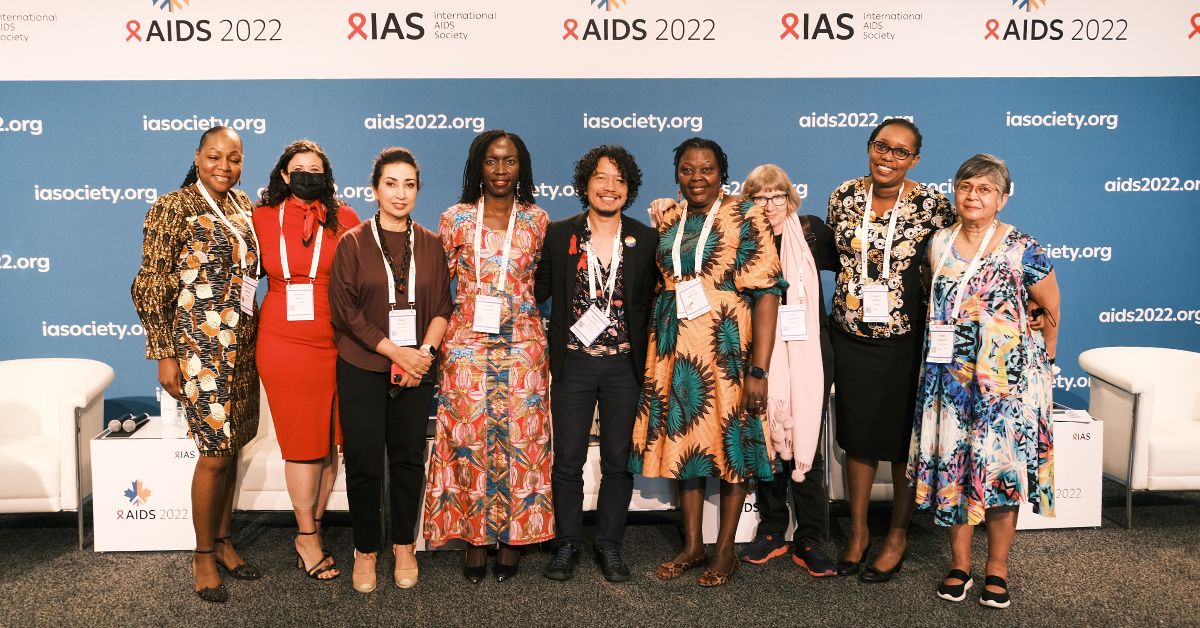Francis Simmonds, Pangaea Zimbabwe AIDS Trust (PZAT)
Taku Mamvuto, Pangaea Zimbabwe AIDS Trust (PZAT)
Adaobi Olisa, FHI 360 Nigeria
For the MOSAIC project team, the AIDS 2022 conference set the stage for embracing the introduction of new biomedical HIV prevention products—including CAB PrEP, officially recommended by WHO in new guidelines—and generating evidence on how to support choice and effective use. We attended the conference virtually and took away three key messages that resonate with our work on MOSAIC:
HIV implementation science is critical to the introduction of new technologies and products.
Implementation science can help ensure that new technologies or products for HIV prevention, diagnosis, and treatment are accessible in diverse real-world settings. At AIDS 2022, a panel of research and funding agency representatives discussed key questions that HIV implementation science should aim to answer. These questions include understanding the challenges encountered throughout the health system in the delivery of new technologies and products and how to resolve them in ways that meet the needs and preferences of affected populations. Panelists also discussed the important role that implementation science plays in the development of evidence-informed guidelines and in improving the quality of services.
Engagement of stakeholders — including policy makers, community members, end users, and civil society organizations — was reinforced as a guiding principle of implementation science. Engaging these stakeholders from the outset ensures that relevant questions are answered by the research and speeds the sharing and adoption of validated findings. As one speaker noted, “implementation science is only as good as it affects programs and policy to change the lives of the people we serve. If it takes years for the findings of an implementation science project to come out, then it’s pointless doing the implementation science.”MOSAIC is designing the CATALYST study to answer questions about the most effective ways to introduce and scale up HIV prevention products, including PrEP ring and CAB PrEP. A range of stakeholders have contributed to the design of this implementation research and will continue to be meaningfully engaged throughout the study, which will be conducted in Kenya, Lesotho, South Africa, Uganda, and Zimbabwe. A quality improvement initiative is embedded in CATALYST to identify and refine what works in real-world settings. And through research utilization — one of our five strategic priorities — MOSAIC will package and promote CATALYST results to inform policy and guide HIV prevention programming.
Digital technologies offer opportunities to improve reach, access, and impact.
The world we live in is increasingly connected, with people living in sub-Saharan Africa gaining more access to mobile internet connectivity by the year. This presents an opportunity for us to leverage innovations in technology to make health services more accessible to vulnerable populations. An AIDS 2022 session on digital health and HIV highlighted the use of digital technology to improve prevention messaging, augment HIV and other STI testing services, increase PrEP uptake and adherence, optimize clinical interventions, enhance mental health services, and refine big data algorithms for HIV surveillance. Also at the conference, WHO and UNAIDS launched a new policy brief on virtual interventions, underscoring their importance to an effective HIV response.
The population at the core of MOSAIC’s work — adolescent girls and young women — are accustomed to mobile technology and engaged in internet culture. MOSAIC can harness the power of digital health solutions to better meet their needs. We will, for example, promote digital peer-led messaging through social media influencers or peer networks and use social media and mobile applications to promote uptake and support effective use of prevention products.
To end HIV and other epidemics, we need to end inequities and injustice.
Several speakers at AIDS 2022 reminded us that lifesaving interventions exist but are still out of reach for many due to inequities and injustice. Many emphasized that we will not reach our targets without engaging all stakeholders affected by HIV, especially the most vulnerable and marginalized populations. Governments and donors need to provide more support and funding for interventions that reach these populations, including adolescent girls and young women.
Every two minutes, an adolescent girl or young woman acquires HIV, often due to an act of sexual violence. Adolescent girls and young women’s vulnerability to HIV is rooted in inequitable gender norms and relationships. Through MOSAIC, we work with adolescent girls and young women and those who influence them — including parents, partners, health care providers, and community members — to challenge harmful norms, remove barriers to the use of prevention products, and create an environment that enables women of all ages to make informed choices for HIV prevention. For more information on how we are prioritizing the needs and voices of young people, read this blog and view this photo story.
This year’s conference theme was a call for the international community to re-engage and follow the science. “Science has given us the evidence we can end the epidemic,” International AIDS Society President Adeeba Kamarulzaman noted in her opening speech. “However, we need to have the same level of urgency for HIV that we have had for the COVID-19 pandemic.”
We left AIDS 2022 feeling inspired. We know what it takes to end the epidemic and MOSAIC is poised to help us get there through robust implementation science on new prevention product introduction, strategic use of digital innovations, and the meaningful engagement of adolescent girls and young women and their influencers in the project.
Featured Image: At AIDS 2022, MOSAIC hosted the scientific workshop “Our Next Shot” during which panelists and presenters explored what is needed to ensure that research and programs are strategically designed, user-centered, and appropriately resourced to support successful rollout of CAB PrEP (Benjamin Eveslage/FHI 360).


